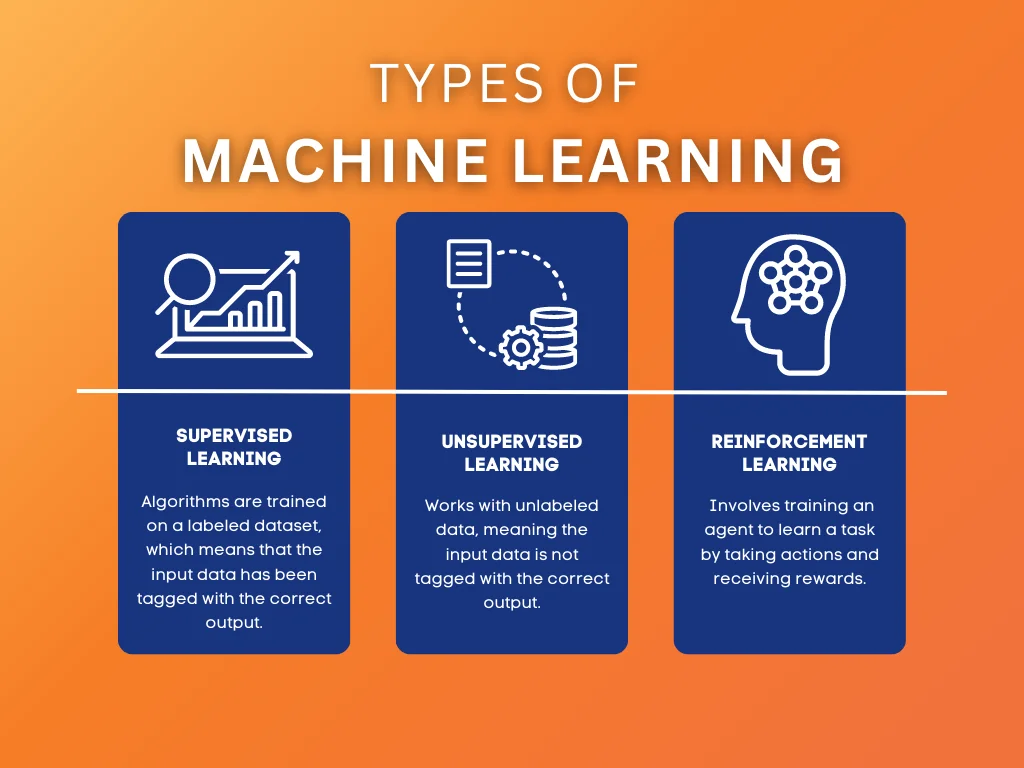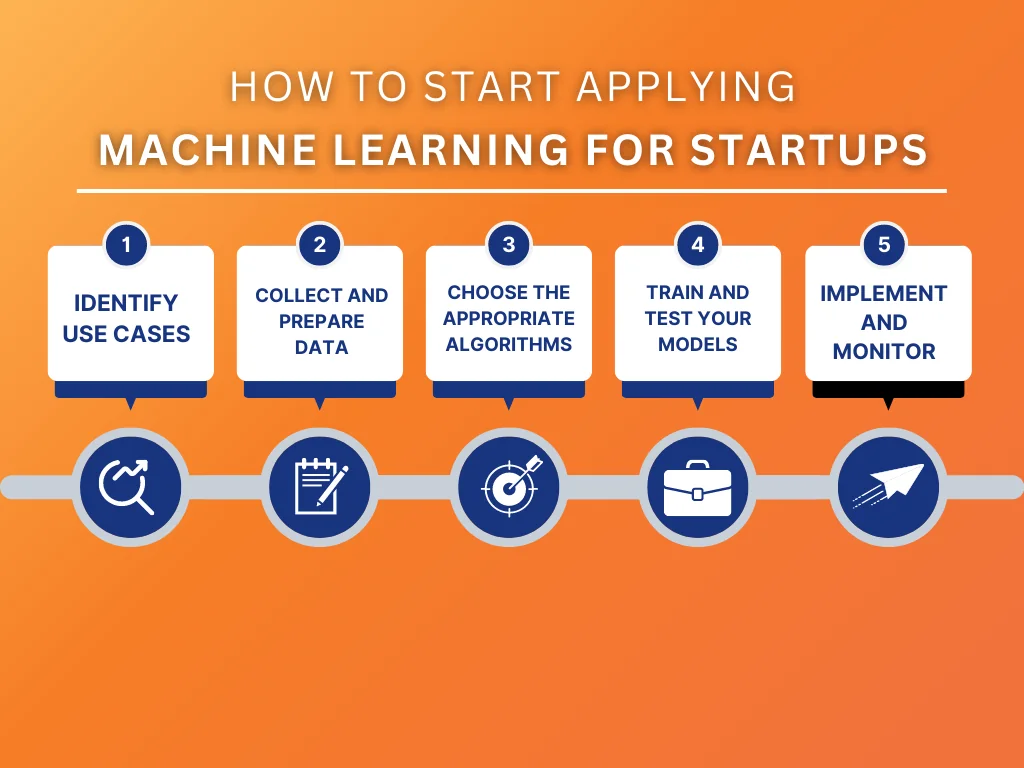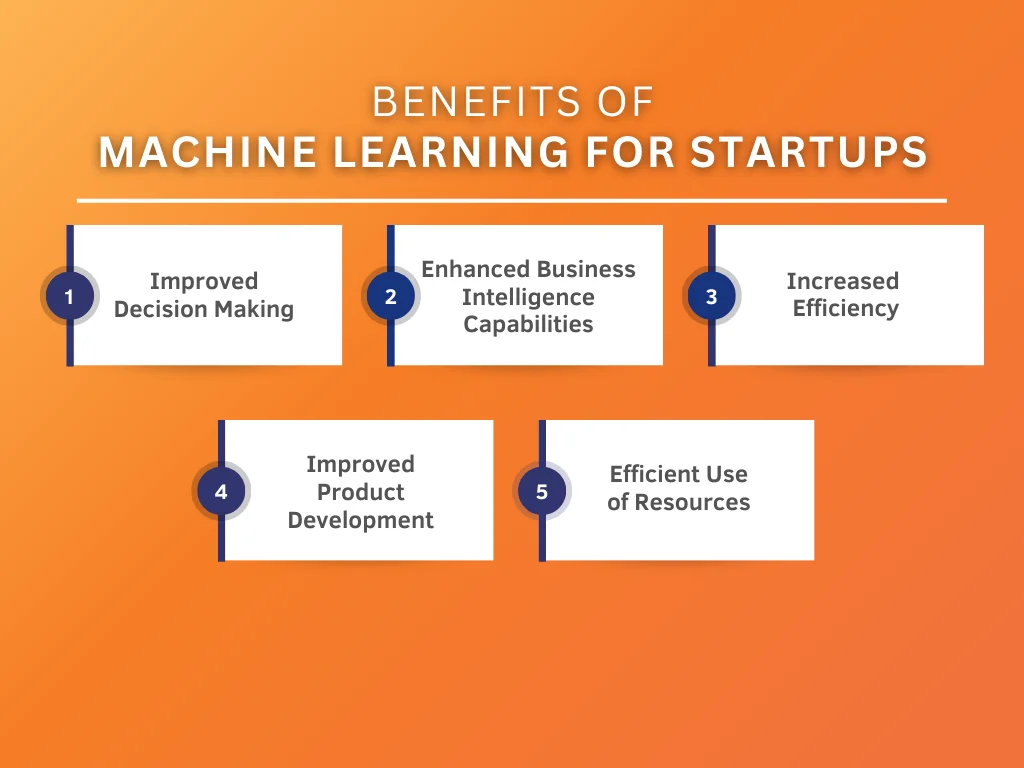What is Machine Learning: Types, Uses, and Benefits For Startups
In today's fast-paced world, startups must stay ahead of the curve by leveraging the latest technology. One such technology that has become increasingly popular is Machine Learning (ML). Machine Learning can potentially revolutionize how startups operate, from product development to marketing and customer service.
With ML, startups can create more intelligent and efficient systems to learn from data sets and produce better results. ML algorithms optimize processes, automate tasks, and reduce human error. By leveraging these capabilities, startups can focus on their core business operations while allowing ML algorithms to handle routine operations such as customer segmentation or product recommendations.
Here at Aloa, we are always focused on helping entrepreneurs, businesses, and individual innovators develop the right software and tools to enhance their operations and make an impact. Therefore, we'd like to introduce you to the three main types of ML and explain how startups can use them.
In this blog, we'll explore what machine learning is, its types, and how startups can benefit from its use. We will also discuss some practical applications of Machine Learning for startups and how to get started with implementing it in your business.
Afterward, you'll better understand what ML is and how it can help your startup succeed.
So let's dive right in!
What is Machine Learning?
Machine Learning is a subset of Artificial Intelligence (AI) that focuses on developing algorithms and models that enable computers to learn from and make predictions or decisions based on data. Simply stated, ML allows computers to improve their performance on a task without being explicitly programmed to do so.
Machine Learning algorithms use statistical techniques to enable computers to "learn" from the data and make predictions or decisions. The machine's performance improves as more data is fed into the algorithm, leading to more accurate predictions and better decision-making.
Since ML can quickly digest, analyze, and interpret data, it can automate processes, optimize operations, and create more efficient workflows. This makes it a valuable tool for startups seeking a competitive edge.
While it is still a relatively new field of technology, ML is rapidly gaining popularity among businesses of all sizes due to its potential for enhancing operations. With its growth potential, you benefit greatly from learning more about it and leveraging its applications in your startup.
Types of Machine Learning
Before we dive into the use benefits and use cases of ML for startups, let's go through the 3 types of machine learning. Each type has different characteristics that make it suitable for different tasks. Understanding the key functionality and difference among each type enables you to accurately choose the right form to use based on your specific needs.

1. Supervised Learning
In supervised learning, the algorithm is trained on a labeled dataset, which means that the input data has been tagged with the correct output. The algorithm learns from this data and makes predictions or decisions based on new, unseen data. Supervised learning is commonly used for tasks such as classification and regression.
Classification refers to tasks that predict categorical labels such as "spam" or "not spam," and regression refers to tasks that predict a numerical output.
Since supervised learning is a type of ML where the algorithm is trained on a labeled dataset, machine learning can ensure that new input data has been tagged with the correct output. Startups can use supervised learning to solve a variety of problems, such as:
- Image classification: Supervised learning aids in classifying images into different categories. For example, a startup that sells clothes can use supervised learning to classify images of clothes into different categories, such as shirts, pants, and dresses.
- Sentiment analysis: Startups can use supervised learning to analyze customer feedback and classify it as positive, negative, or neutral. This can help startups understand customer sentiment and improve their products and services accordingly.
- Fraud detection: Supervised learning also aids in detecting fraudulent transactions by training the algorithm on a labeled dataset of fraudulent and non-fraudulent transactions.
2. Unsupervised Learning
Unsupervised learning algorithms work with unlabeled data, meaning the input data is not tagged with the correct output. The algorithm must learn to identify patterns and structures within the data without any guidance.
Unsupervised learning is commonly used for clustering, anomaly detection, and dimensionality reduction tasks.
As a startup, you can use unsupervised ML learning in cases such as:
- Clustering: Clustering refers to grouping customers into clusters based on common characteristics. This can help startups better understand their target audience and create tailored campaigns to reach them.
- Anomaly detection: Anomaly detection is a function of unsupervised ML that identifies unusual patterns in their data that could signify an anomaly, such as fraudulent activity. This can help startups prevent fraud and protect their customers' data.
- Dimensionality reduction: Dimensionality reduction reduces the number of features in a dataset, allowing them to build a more accurate model with fewer input variables.
3. Reinforcement Learning
Reinforcement learning is an advanced type of ML that involves training an agent to learn a task by taking actions and receiving rewards. The agent learns through trial and error, adjusting its strategy over time to maximize the reward it receives. Reinforcement learning is commonly used for robotics, gaming, and decision-making tasks.
Startups can use reinforcement learning in cases such as:
- Robotics: Reinforced ML is used to train robots and enable them to perform complex tasks. For example, a startup producing software for the healthcare industry can use reinforcement learning to train robots for medical procedures.
- Gaming: Gaming developers can use AI agents that can play complex games such as chess and Go. This could be used to create gaming platforms with realistic opponents that provide a challenging experience for players.
- Decision-making: Reinforcement learning supports the ability of startup decision-makers to make better-informed decisions. For example, a startup that provides financial advice could use reinforcement learning to analyze market data and suggest the best investments for its customers.
Getting Started with Machine Learning for Startups
As mentioned, machine learning is a broad technology with numerous applications and use cases. Its capabilities are not limited to one industry or another. They can be used to aid startups in several ways.
Since ML casts such a wide net, it's essential for you to specifically define what the technology will be used for and its purpose in relation to your goals.
To get started with Machine Learning, startups should:

Step 1: Identify Use Cases:
Machine learning has a handful of use cases for your startup, so taking the time to identify which aspects of your business could benefit most from ML is a great place to begin. Ask yourself questions such as:
- What are the current pain points in our workflow?
- What data-driven insights can be extracted from our datasets?
These questions then narrow your priorities based on the potential impact and feasibility of incorporating ML into your business. Also, identifying your use cases for ML enables you to pinpoint any pain points or bottlenecks in your current systems and processes that ML could help address.
Step 2: Collect and prepare data:
Based on the use cases you've identified, you must collect the necessary data to train your ML models. This typically involves gathering data from various sources, such as databases and APIs, and then pre-processing it for training. The more data you have available, the better your results will be.
Keep in mind that your data should be free of errors, standardized, and formatted correctly. This is the best way to ensure that your ML models can accurately process the data and deliver accurate results.
Additionally, including the potential results you are after within the provided dataset makes it easier for machine learning to enable tools to structure your data in the manner you want. The more precise your datasets are, the better outcomes you’ll realize when it comes to aggregating and analyzing.
Step 3: Choose the appropriate algorithms:
Algorithms are the building blocks for ML models. Therefore, it's important to select the appropriate algorithm for your use case. Different algorithms are suitable for different kinds of tasks. Your algorithms will be based on two main factors:
- The type of data you need to analyze.
- The required output you are after.
For example, if your startup needs to analyze customer data and provide personalized recommendations, you'll need to choose an algorithm designed for such a task. On the other hand, if you need to detect fraud and alert users, then an algorithm for detecting anomalies would be most suitable.
Step 4: Train and test your models:
Once you've narrowed down the type of data ML will analyze, and what your desired output is, it's time to start training and testing your model so you can get the best results from it. Training your ML model includes feeding it data and teaching it to recognize patterns in the data.
Then, you'll need to test your model on a separate set of data to measure its accuracy. This process allows you to identify any weak points in your model so that you can make adjustments accordingly. The data used to train your models then allows you to evaluate their performance to ensure they are providing accurate predictions and insights.
Ideally, the resulting output enables your startup to come up with actionable insights that are highly usable in real-world scenarios such as product development and customer engagement strategies.
Step 5: Implement and monitor:
After training and testing your ML model on your specific data, you can implement its use across the departments or elements you see fit. When implementing machine learning models, it's also vital to monitor the output it provides on a regular basis. More often than not, it will require you to feed updated data back into the model to adjust and improve its results.
The upkeep of ML models then ensures the output you receive in terms continues to provide relevant and valuable insights that you can use to enhance your startup's ability to respond to market changes based on real-time data and trends.
Benefits of Machine Learning for Startups
Machine Learning is an invaluable tool for startups seeking a competitive edge. With the right strategies and tools, startups can use ML to develop efficient solutions that save time and money while improving customer satisfaction.
Let's look into the core benefits ML has for startups:

1. Improved Decision Making
Machine Learning algorithms can analyze large amounts of data and identify patterns and trends that humans might miss. This can lead to better decision-making, as startups can use these insights to make more informed choices about their products, services, and strategies.
With access to up-to-date information, startups can respond quickly to changes in the market and stay ahead of their competitors. Additionally, improved-decision making based on accurate and updated data enables startups to develop more robust plans when it comes to scaling their operations.
Data can potentially provide insight into the feasibility of a new product launch or the potential of expanding into a certain market.
2. Enhanced Business Intelligence Capabilities
Startups can use tools and software applying machine learning algorithms to extract actionable insights from historical trends and customer data. This helps startups develop better marketing strategies, as they become aware of different preferences and behaviors. Additionally, using machine learning to enhance business intelligence enables high-level decision-makers to make better-informed decisions.
Traditionally, collecting, analyzing, and segmenting business data resulted in time-consuming processes that made it difficult for startups to stay ahead of current developments in their industry. With machine learning, startups can quickly extract valuable insights from the data and use it to their advantage within a real-time setting.
3. Increased Efficiency
Machine Learning can help startups automate various tasks, leading to increased efficiency and productivity. For example, ML algorithms can be used to automate customer service tasks, such as answering frequently asked questions or handling routine support requests.
Increased efficiency enables startups to take on more projects, initiatives, and customers without the need for additional personnel or resources. Small startups looking to grow and scale can easily achieve their goals while maintaining their current resources, both in terms of available personnel and monetary aspects.
4. Improved Product Development
Developing innovative, user-centric, and scalable products is a necessary component of any successful startup. However, taking on this task is a time-consuming endeavor that requires intensive research into market trends, customer needs, and development opportunities.
When startups apply the use of machine learning to their product development initiatives, they can speed up their capabilities in analyzing customer feedback, identifying market trends, and making data-driven decisions with a precious outlook.
Being able to streamline the process of product development then leaves more room for your startup to resonate with customers in an engaging manner, making it more likely that you'll be able to build a startup brand around customer loyalty, referrals, and high trust.
5. Efficient Use of Resources
The efficient use of resources is always a top priority for startups, especially with limited time and resources. Machine Learning algorithms can optimize processes, leading to more efficient use of resources.
Startups can use ML to automate mundane tasks or identify operational bottlenecks. This helps startups make the most out of their available resources while also allowing them to focus on strategic initiatives that are likely to have the most impact.
Machine Learning can be a game changer for startups when used wisely and strategically. By leveraging ML, startups can make better decisions, enhance customer experiences, develop more innovative products and services, and improve their use of resources. The opportunities are limitless, making machine learning an invaluable asset for startups.
Key Takeaway
Machine Learning offers a wealth of opportunities for startups looking to improve their decision-making, enhance customer experiences, and increase efficiency. By understanding the types of Machine Learning and identifying practical applications, startups can harness the power of this technology to drive innovation and growth.
Properly applying a tool as powerful as this enables startups to unlock their full potential and gain a competitive edge, no matter how saturated an industry is. However, deploying machine learning software-enabled tools does take time, investment, and understanding to get right.
If you're ready to create the best software and tools that leverage machine learning capabilities, reach out to our experts at Aloa to discover how you can get started. We'll provide you with the resources and expertise to help your startup realize its potential.

